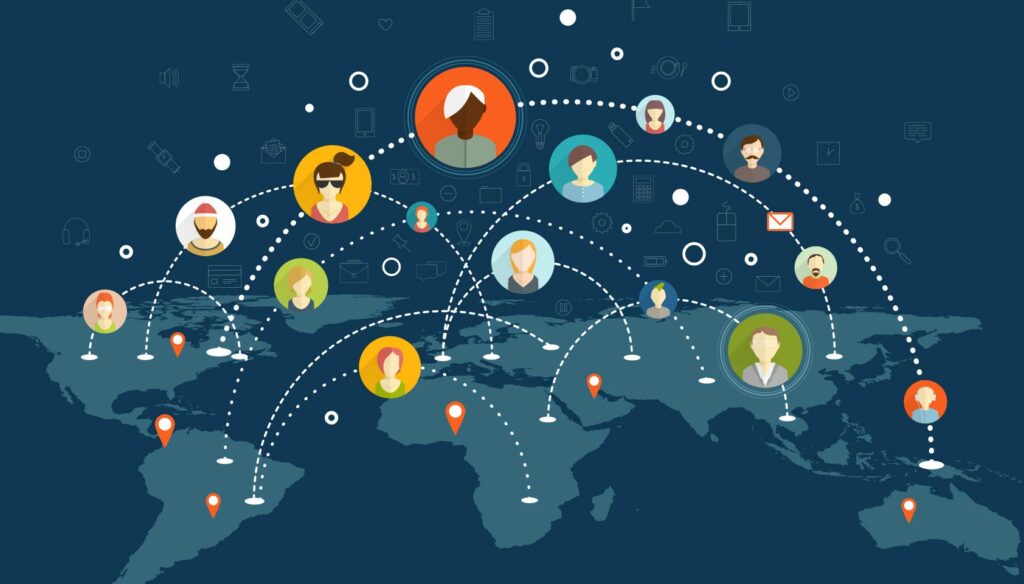The HR department in any organisation is pivotal. It plays one of the most important roles in a business because it handles strategic planning, company image, acquiring the right talents, and hiring. With all the tasks that HR personnel should do, the introduction of using big data has become a huge breakthrough in running the department.
What is Big Data?
According to SAS, the term “big data” refers to the data that is so large, fast or complex that it’s difficult to process using traditional methods. The idea was there for a very long time, but this concept gained momentum in the early 2000s.
Doug Laney, an industry analyst, enunciated the importance of big data as the three (3) V’s.
1. Volume: In businesses, data could be collected from a variety of sources including transactions, smart devices, videos, documents, and so much more. In previous years, storing big volume data takes up a lot of space on external hard drives and backups on other storage devices. Nowadays, there are affordable online platforms that could ensure security for any volume of data.
2. Velocity: The data streams that businesses acquire comes at an unprecedented speed and must be handled in a timely manner.
3. Variety: There are a huge variety of data. Whether structured or unstructured text documents, databases, emails, videos, audios, graphics, and others, the big data sure can handle it all.
Why is Big Data Important?
In today’s innovative world, using big data has become highly important. Initially, it doesn’t just focus on how much data you have, but what you can do with it. While all of those could be overwhelming to analyze and manage, big data enable cost reductions, time reductions, new product development, optimized offerings, and smart decision making.
While all those important aspects of acquiring big data alone is a huge feat, let us also find out what’s in it for the HR department.

8 Benefits of Embracing Big Data in HR
Traditionally, the HR department is one of the busiest and most cluttered places in an office setting. Papers piled up on desks and file cabinets lined up everywhere are just normal during this time. Sorting all those files take up a lot of energy, manpower, and time. However, technological advances came fast and most businesses became reliant on outsourcing.
Moving forward, a lot of advanced years came by and the usage of online storage became a hit. Companies are suddenly going paperless and fewer people are needed to run a department while most are utilised for other roles.
Suddenly, HR outsourcing in the Philippines became famous and even the smallest entrepreneurs use this practice. To learn more about the usage of big data in human resources, check out these benefits:
1. Improving strategic workforce planning
Big data has the ability to sort all candidates by their specific skill sets, work arrangement options, work experience and other categories. This help businesses tap into a very precise talent pool and immediately exclude other candidates that do not pass the qualifications. By doing this, the HR department can save more time to look at a broader talent pool.
2. Predicting hiring needs
One very specific benefit of big data in HR is that it helps employers improve their quality of hire. It also strengthens employee retention and better predicts hiring needs. By mining employee data and identifying their pattern of skills, performance, education, professional experience, and more, then hiring the right talent would be so much easier.
3. Improving retention
According to a relevant HR study, the company culture hugely affects employee retention. With big data, HR can now immediately identify if a candidate and their personality align with the company values and goals. For an organisation’s long-term survival, employee retention is the key.
4. Providing hidden talent insight
The use of big data in HR lessens the actual number of staff needed in the department. So, instead of employing a whole HR department, the company can actually cut the number and have them do other things that will help with their career growth. Now, this is where hidden talents could be discovered.
5. Enabling decision-making without bias
By implementing big data in HR, decision-making would be quicker and simpler. There won’t be any issues of being biased, because all of it will be based on actual numbers. And so, the HR people will be able to accurately track the demographics and performance of each and every employee.
6. Automating your processes
Embracing the use of big data in HR allows you to use tools to automate your processes. On the other hand, your human resources team will be more available for strategic planning, reaching out to employees, and finding more ways to engage and support them.
7. Tapping into shared experiences
Being exposed to HR trends in other industries allows employers and their staff to get better ideas. It will also aid the HR leaders to create strategies that would best fit the organization they belong to. This drives new big data analytics and AI-powered solutions onto the market.
8. Unlocking powerful ideas
As analysing data can give you other points of view to focus on, it can also unravel more ideas that could later turn into an opportunity that will change the way companies handle their HR.
Conclusion
The implementation of big data in most companies is an advanced move that will help the business reach, understand, and target their supposed audience. On the other hand, the HR department is indeed a huge beneficiary of big data.
So if you’re thinking about working with an outsourcing provider who shares your goals and aspirations, check out DBOS and get to save up to 70% on your labour costs!
Contact us today and get a free consultation with our CEO/Founder.





